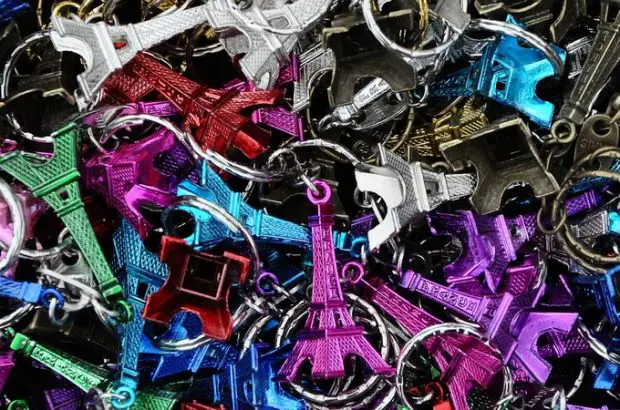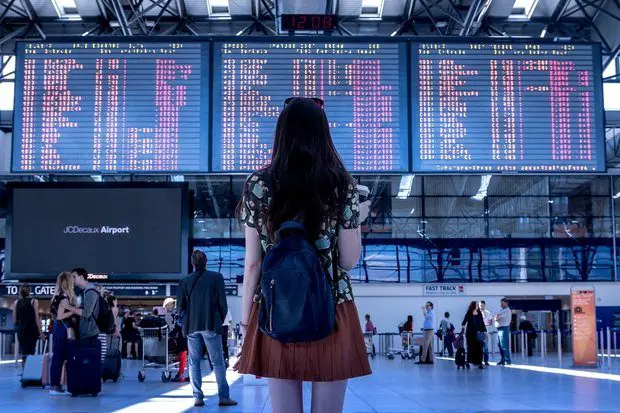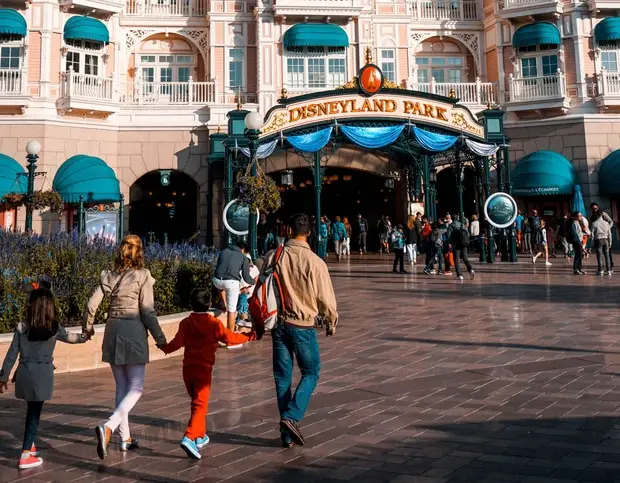Worried about renting a car in France? What license do you need? Is it safe? How to drive in France?
My article contains all the answers to your questions about renting a car in France.

Table of Contents
Is driving in France safe?
Driving in France is relatively safe. The road network is well organized, and if you respect the traffic and speed regulations, you should have no problem.
The roads are well-lit, which makes driving at night much safer.
What are the main rules for driving in France?
- You drive on the right side of the road.
- Wearing a seat belt is mandatory.
- Talking on your cell phone is prohibited unless you are using a hands-free kit.
- 0.05% is the blood alcohol level in which you are considered to be driving impaired.
- You must have a reflective vest and a reflective triangle in your car.
- If there is no sign when you arrive at a junction, priority is given to cars coming from the right.
- Do not enter the old town centers if you are traveling by truck or van.
- The emergency number is 112.
- In the event of an accident on the highway, you will find orange emergency call terminals on the side of the road, every two kilometers.
- You must always have your driver’s license, ID, and proof of liability insurance with you.
- Pedestrians always have the right of way no matter where they cross the road.
For speed regulations, here is a small table to help you before hitting the road:
They are indicated on a sign in a red circle.
| Highways | 130 km/h |
| Two-lanes | 110km/h |
| Main roads outside urban areas/ Roads A & B | 80 km/h or 90 km/h |
| Main roads in urban areas | 50 km/h
Some exceptions 20km/h |
Mind the French drivers though, they love to speed up and manifest their impatience.
How are the roads in France?
There is a solid network of highways as well as many secondary roads. The roads are generally in good condition and the markings on the ground are maintained so that you can find your way around.
French roads are known for their many roundabouts and speed bumps. This may surprise you if you’re not used to it.
Do you need an international license to drive in France?
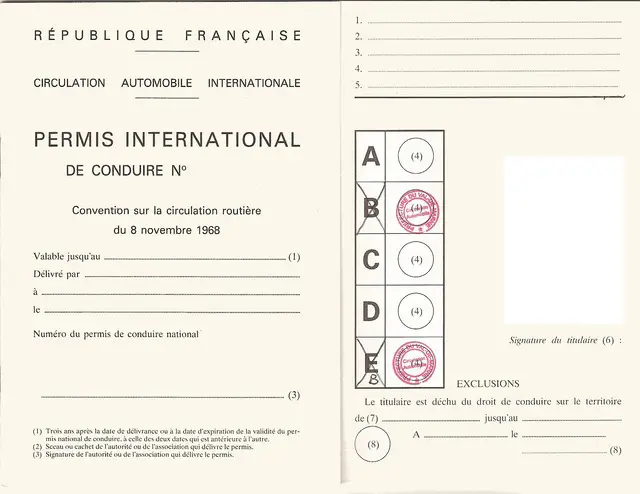
The conditions for driving in France vary depending on the country that issued your license.
For drivers with a license issued by a European country:
- You must be at least 18 years old.
- Your license must be valid, and not subject to restriction or suspension.
- You must comply with the medical information written on your license (wearing glasses, fitting out the vehicle for people with disabilities, etc.)
For drivers with a license issued outside the European Union, the same rules apply. However, you must also have an international permit.
If you obtain a residence permit in France, you can exchange your license for a French license.
To check if your license is eligible in France, take the test on the Service Publique website.
Be careful though, some car rental agencies may refuse to rent you a car if you are not 21 years old, or sometimes even 25 years old (more on this below).
Is it difficult to drive in France?
It all depends on where you are. There are places in France where it is very easy and pleasant to drive, and others where it is not.
Overall, driving in big cities is difficult due to traffic. However, country roads are relatively pleasant to drive on and often offer superb landscapes.
Some streets can be narrow, though. In this case, you have to pull over to the side to make room for cars coming from the opposite way.
Parking is arguably the most difficult part of driving in France, and this is the opinion of the majority of foreigners.
Is it easy to drive in Paris?
No, driving in Paris is more or less a nightmare. If you want to avoid this stress, I recommend that you use the public transportation network (train, metro, bus, Vélib), taxi, or Uber to get around the capital.
Check out our other article if you’re wondering whether it’s better to rent a car or use public transportation in Paris.
Do you need a windshield sticker to drive in Paris?
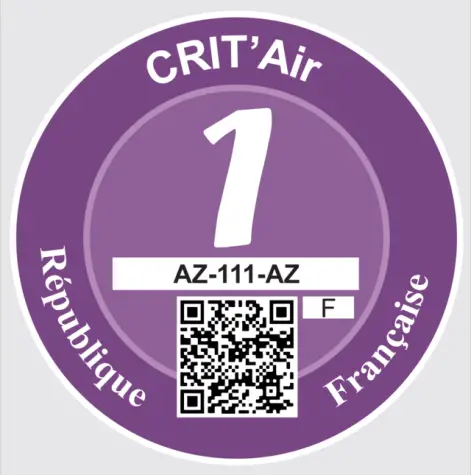
To be able to drive in Paris, your vehicle must bear the Crit’Air sticker. It is an ecological measure, and it is mandatory in low-emission zones (ZFE) and during differentiated traffic.
This sticker is provided by rental companies. However, if it is your own vehicle, you can apply for one on Certificat-air.gouv. (website in French)
The cities where this sticker is mandatory are:
- Paris
- Strasbourg
- Lyon
- Nice
- Marseille
- Montpellier
- Toulouse
Is it easy to drive in the South of France?
It is relatively easy to drive in the South of France. The roads outside the city are not difficult to navigate.
For the scenery alone, renting a car is definitely worth it.
On the other hand, I do not recommend a car for big cities like Marseille, Bordeaux, or Toulouse.
The city of Marseille, in particular, is renowned for its lack of civility on the road. The streets are teeming with cars and it is impossible to park, so drivers park anywhere, not to mention the insults and incessant honking.
What is most noted by foreigners, in general, is the lack of civility of users on the road, so you always have to be very alert.
Should you rent a car in France?
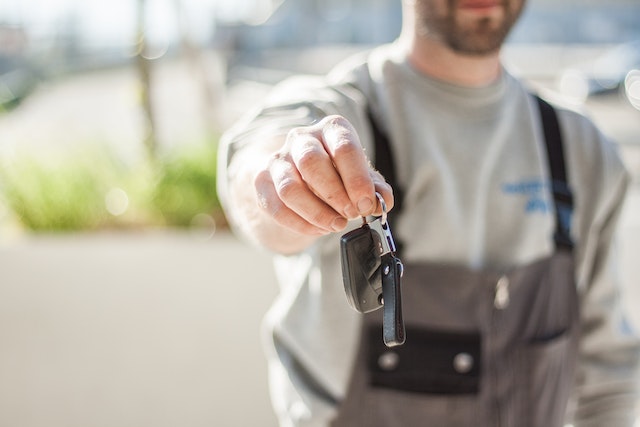
It all depends on what part of France you are visiting.
If you are planning to visit a big city, I highly recommend using the public transport network.
Usually, everything is well connected and you will go much faster than if you were driving because of heavy traffic.
On the other hand, if you are visiting the countryside, I advise you to rent a car.
In some regions of France, such as Les Landes, you cannot go anywhere if you do not have access to a car.
Should you travel by train or by car?
Taking the train is the most efficient and least polluting means of transport.
The French rail network is excellent. You can travel almost anywhere cheaply, especially if your main travel destinations are major French cities.
You have the choice between Inouis trains, the low-cost alternative Ouigo for long journeys, or TER trains that link destinations in the same region.
You also have intercity trains that pass through several major cities.
To get a visual of prices and travel times (tickets are cheaper if you buy them in advance):
- Paris-Bordeaux train: between €10 and €80 (Ouigo, Inoui) in 2 hours
- Intercités Bordeaux-Marseille: between €25 and €160 in 6 hours
- TER Marseille-Aix en Provence: €9 in 44 minutes (TER train’s prices never change)
The cost is advantageous compared to the travel time and the rental price of cars.
On the other hand, if you want to visit the French countryside, renting a car is always the best solution.
Is the Uber app available in France?
Yes, but not everywhere. The app is available in 24 cities in France:
- Bordeaux
- Cannes
- Lille
- Lyon
- Marseille
- Montpellier
- Nantes
- Nice
- Paris
- Rennes
- Strasbourg
- Toulouse
- Aix-en-Provence
- Arcachon
- Avignon
- Bayonne
- Biarritz
- La Baule
- Saint-Jean-de-Luz
- Saint-Tropez
- Saint-Raphaël
- Toulon
Is it easy to park in Paris?
It is not easy to park in the streets of Paris, but there are tips for finding where to park.
The car parks, especially the underground ones, remain the best solution.
But you should know that car parks are generally very expensive in Paris.
Check out this guide to car parks to find out where they are and how much they cost.
There are also free parking spaces in various districts, but they are quickly taken over.
Where is the best place to rent a car in Paris?
There are plenty of places to rent a car in Paris with different pick-up and drop-off locations.
I would say that the best place is the transfer points, such as the airport or the train station.
It is often a little more expensive to rent them there, but it makes your stay much easier.
Which car rental agency should you use at Charles de Gaulle Airport (CDG)?
There is a multitude of agencies where you can rent cars.
According to reviews, here are the Top 3 agencies they recommend:
- Thrifty (9/10)
- Avis (7.6/10)
- Sixth (7/10)
Which car rental agency should you use at Orly Airport (ORY)?
At Orly airport, the most popular agencies are:
- Rentalcars (7.4/10)
- Europcar (7.3/10)
- Budget (6/10)
What are the best agencies to rent a car in France?
On the scale of France, the most popular agencies are:
- Enterprise (9.5/10)
- Hertz (9.35/10)
- Europcar (9.34/10)
Rentacar, Sixt, and Thrifty are also good agencies, according to the opinion of Internet users.
How much does it cost to rent a car in France?
The prices obviously vary according to the model of the car, the duration of the rental, the geographical location of the rental company, and the differences between high and low seasons.
A car rental costs, on average, between €60 and €230 depending on the day and the season.
How much does it cost to rent a car in Paris?
Renting a car in Paris costs on average €138.60 per day in high season for the cheapest model and €229.90 per day for an intermediate model. But prices start at €62 per day.
In low season, the average price is €94.50 per day for the cheapest model and €133.90 per day for an intermediate model. But the prices start at €50 per day.
For a detailed study on car rental prices in Paris, head to this article.
Do you need insurance to rent a car in France?
It is indeed mandatory to have civil liability insurance when you rent a car in France, whether for the short or long term.
That being said, don’t panic. The rental company provides the insurance along with the car. The costs are generally included in the rental contract.
When you pick up the car, the rental company must provide you with the supporting documents for this insurance.
The prices of these insurance costs vary from agency to agency.
Can you use your own insurance instead of the agency’s insurance?
Most insurance companies allow you to extend your personal vehicle coverage to the cars you rent. Check with them to see if this is possible.
You will then have temporary insurance, generally limited to 30 days, offering coverage that is often more extensive and less expensive than what the rental agency offers you.
How much does insurance cost?
A typical city car, such as a three-door Clio, costs between €15 and €30 per day of insurance.
Is gas expensive in France?
Gas is quite expensive in France, and its price continues to rise.
Taxes account for approximately 60% of the price of gasoline and diesel at the pump, in addition to the embargo on Russia, which means that distributors must source their supplies elsewhere at a higher cost.
Currently, the average price is €1.830/l for gasoline and €1.910/l for diesel.
The prices vary, depending on if you are in a rural area or an urban area. For example, the price of gasoline in Paris will be much higher than in the countryside.
Tips for renting a car in France
To rent a car in France, you must first know these practical details:
- You must be 21 years old.
- Have held your license for at least 1 year.
- You must provide an identity document and your license (and those of any additional drivers)—in addition to the International License if you are not from the EU.
- If you are under 25, you will need to subscribe to “young driver” insurance in addition to civil liability insurance, whether you are French or foreign.
- For drivers outside the EU, you need your International License.
Knowing that the road network is very well organized and of high quality, you do not need to rent a particular model of car.
Be aware that most of the cars you can rent are manual, so if you only know how to drive an automatic, be careful about the model you’re choosing. Automatic vehicles are more expensive than manual ones.
Tips for renting a car in Paris
All train stations and airports in France have a car rental point, so if you are arriving from somewhere else in France, you can rent it there.
Since driving and parking are difficult, I advise you to rent a small car.
The roads are also narrower than in Canada or the United States, for example. The cars you will see on the road are smaller than the ones you are used to if you are a foreigner.
Common scams and how to avoid them
The most common scams are about insurance.
Some agencies will try to sell you unnecessary insurance for an additional fee.
As a reminder, the only required insurance is civil liability and young driver insurance if you are under 25, whether you are French or foreign.
When you pick up your vehicle, pay close attention to the condition in which they give it to you.
Check the vehicle’s condition document carefully.
I also advise you to take pictures of any scratches and bumps to have visual proof of its condition before using it.
Some agencies will charge you for damage you did not inflict on the vehicle.
Do the same when returning the vehicle.
When renting a car online, make sure the site or agency is legitimate. You can use the TrustPilot platform or Google Maps reviews to be sure you can trust them.
Tips for driving in France
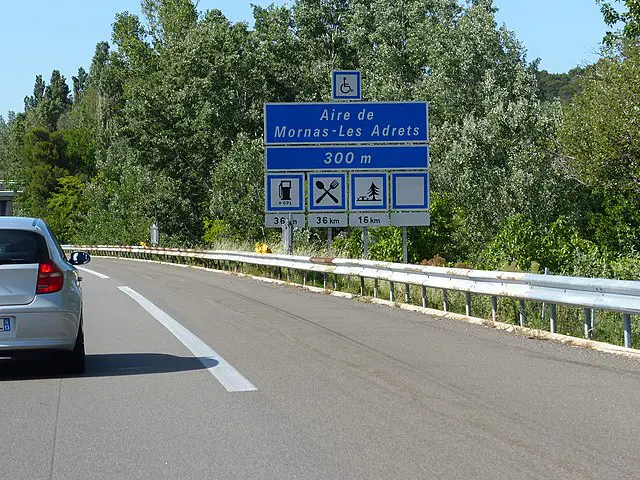
Traffic Regulations
Do not hesitate to learn the French traffic regulations; you will feel much more confident behind the wheel.
Gas stations
There are not as many gas stations as in the United States, so be sure to fill up or stop as soon as you find one, especially if you are in a rural area.
On highways, gas stations are converted into rest areas.
You will generally find a little nature spot, a store, and a restaurant or snack bar.
There are also bathrooms, and some are equipped with showers.
Roundabouts
In France, you will come across a fair amount of roundabouts.
If you’re not used to them, these are the basics: cars will come from the left, enter the roundabout when the coast is clear, and use your turn signal before exiting.
Bridges
Bridges in France are rather narrow. On country roads, they are often only one lane.
A sign with two arrows going in opposite directions, one of which is a little bigger, will let you know who has priority to pass.
GPS
It’s best to always have your GPS open when you drive.
The app Waze, for example, will allow you to move around without getting lost, and will tell you in real time what is happening on the road (speed cameras, police, traffic, etc.).
It will also remind you of the speed limit.
Google Maps is an alternative that works very well in France.
Maps.me works even if you don’t have a wireless network or even a SIM card in France.
Speed cameras
Speed cameras are common on French roads.
You can go up to 2km/h over the speed limit, but no more.
You should also avoid going significantly under the speed limit: the speed cameras will flash if you’re driving less than 50km/h on roads limited to 80km/h and above since this is also considered hazardous.
Tolls
You will also find tolls on the highway.
Some of them are very expensive.
For this reason, it’s especially handy to have a GPS since it can show you alternative routes to avoid them.
There are often roads that allow you to bypass them if you have some time to spare.
That being said, if you do have to go through a toll, they are quite easy to pass. You just have to roll down your driver’s window, swipe your credit card or insert cash in the terminal provided, the gate lifts, and you’re good to go!
Police
It’s rare to encounter the police on the road. However, if a police officer flashes their lights at you, pull over to the right.
The officer will ask you for your driver’s license, your insurance, as well as the vehicle papers (provided by the rental agency, in addition to your rental contract).
Don’t try to slip them some cash to avoid a ticket; you won’t get away with it.
Parking garages
Some parking garages are free and others are not.
Underground car parks are quite narrow, as are those with multiple floors. Just something to keep in mind when choosing a rental car.
Leaving the vehicle
When you leave your vehicle, do not leave any valuables in the car.
If you must leave your belongings in the car, don’t leave them within view. Slip them under the seat or in the glove box.
Car thefts are very rare, but petty thefts are quite common. All it takes is breaking a window.
I aim to share my tips and recommendations for the beautiful country of France. My goal is to help you plan your next adventure, whether it’s a weekend getaway or a once-in-a-lifetime trip. From finding the best hotels and restaurants, to discovering unique activities and sights, I’ve got you covered!

